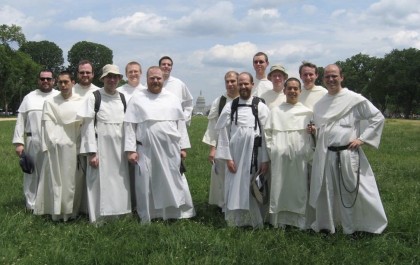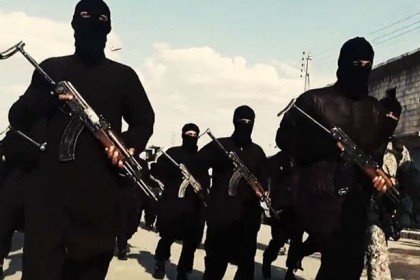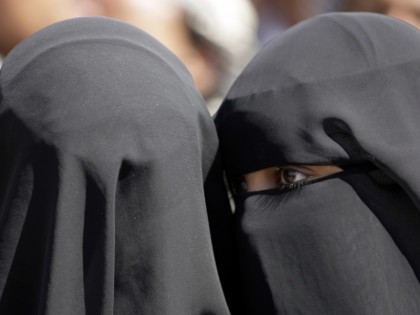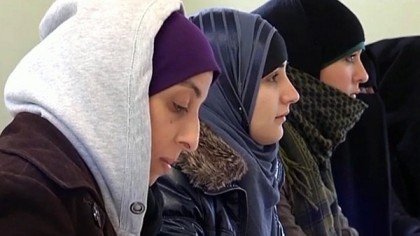Faces, fear, and free expression
Katie van Schaijik | Apr 7, 2016
A funny thing happened the other day. A Dominican priest mingling socially on an Indiana college campus was mistaken for a KKK Klansman wielding a whip. A twitter alarm went out; an earnest R.A. sprang into action, sending an urgent appeal to students:
Please PLEASE PLEASE be careful out there tonight, always be with someone and if you have no dire reason to be out of the building, I would recommend staying indoors if you're alone. If you feel unsafe, please contact me...
The "hilarious miscommunication" inspired a meme making the rounds on Facebook today.
[Unfortunately no longer available.]
But I'd like to use the occasion to make a serious point about persons and society.
What is the standout difference between the white robes of Klansmen and the white robes of Dominicans?


Hint: it's the same as the one between your typical Islamist militants and American soldiers on the battlefield:


and the one between the burqa and the hijab.


Answer: It's about the face, the seat of individuality, the locus of interpersonal communication.
A group whose "uniform" hides the faces of its members is a group that subordinates individuality to the collective, that disallows its members to relate to others as persons. It's a group that means to instill fear and threaten force; that refuses accountability.
Those who don the uniform (either freely or via coercion) prevent their being recognized as individual moral agents, answerable for their acts and opinions. It blocks out the mutual respect and trust that are the warp and woof of the moral fabric of the civil society.
So, while we are committed to the free expression of ideas and the free exercise of religion, it seems to me that we should oppose and perhaps prohibit group-dress that hides the face as inimical to our fundamental values and an offense against the dignity of the person.
